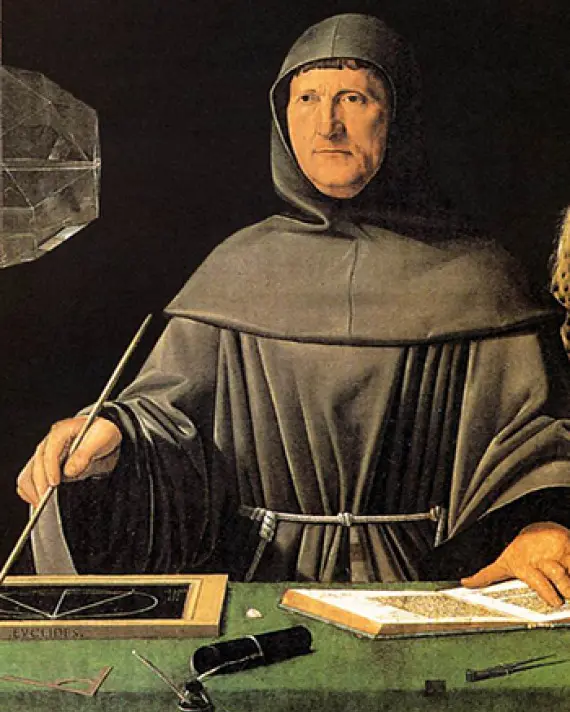
Origin and Early History of Commerce:
Commerce is the large-scale organized system of activities, functions, procedures and institutions that directly or indirectly contribute to the smooth, unhindered distribution and transfer of goods and services on a substantial scale and at the right time, place, quantity, quality and price through various channels from the original producers to the final consumers within local, regional, national or international economies. The diversity in the distribution of natural resources, differences of human needs and wants, and division of labour along with comparative advantage are the principal factors that give rise to commercial exchanges.
Commerce consists of trade and aids to trade (i.e. auxiliary commercial services) taking place along the entire supply chain. Trade is the exchange of goods (including raw materials, intermediate and finished goods) and services between buyers and sellers in return for an agreed-upon price at traditional (or online) marketplaces. Commerce drives economic growth, development and prosperity, promotes regional and international interdependence, fosters cultural exchange, creates jobs, improves people's standard of living by giving them access to a wider variety of goods and services, and encourages innovation and competition for better products.
Commerce traces its origins to ancient localized barter systems, leading to the establishment of periodic marketplaces, and culminating in the development of currencies for efficient trade. In medieval times, trade routes (like the Silk Road) with pivotal commercial hubs (like Venice) connected regions and continents, enabling long-distance trade and cultural exchange. From the 15th to the early 20th century, European colonial powers dominated global commerce on an unprecedented scale, giving rise to maritime trade empires with their powerful colonial trade companies ((e.g., Dutch East India Company and British East India Company) and ushering in an unprecedented global exchange (see Columbian exchange). In the 19th century, modern banking and related international markets along with the industrial revolution fundamentally reshaped commerce.
Developments in Commerce:
1. Medieval Trade Fairs: In Europe, medieval trade fairs such as those in Champagne, France, and Leipzig, Germany, played a crucial role in the development of commercial practices and international trade.
2. Age of Exploration: The European Age of Exploration (15th-17th centuries) expanded commerce globally, with explorers like Vasco da Gama and Christopher Columbus seeking new trade routes to Asia and the Americas.
3. Industrial Revolution: The 18th and 19th centuries brought about significant advancements in transportation, communication, and manufacturing, leading to the rise of modern commerce and the development of corporations.
Father of Accounting and Commerce:
Luca Pacioli: Often referred to as the "Father of Accounting," Luca Pacioli was an Italian mathematician and friar who published a book in 1494 titled Summa de arithmetica, geometria, proportioni et proportionalità, which included a section on double-entry bookkeeping. His work laid the foundation for modern accounting practices and had a profound influence on the development of commerce.

Famous Writers in Commerce:
1. Adam Smith: Known as the father of modern economics, Adam Smith's book The Wealth of Nations (1776) laid the groundwork for classical economics and discussed the principles of free markets and division of labor.
2. David Ricardo: Another influential economist, Ricardo, contributed to economic theory with his works on comparative advantage and international trade.
3. Alfred Marshall: Marshall's Principles of Economics (1890) became a seminal textbook in the field of economics, discussing supply and demand, marginal utility, and the role of markets in allocating resources.
Modern Commerce:
Globalization: The 20th and 21st centuries have seen the rapid expansion of commerce due to globalization, technological advancements, and the growth of multinational corporations.
E-commerce: The internet revolutionized commerce with the advent of e-commerce platforms, enabling businesses to reach global markets and consumers to shop online.
A Bachelor of Commerce -Honours in Finance and Taxation is an undergraduate program that focuses on the financial aspects of business operations and the principles of taxation. This specialization equips students with knowledge and skills essential for careers in finance, accounting, and taxation.
The B.Com in Finance and Taxation typically covers:
Financial Management- Principles of managing a company’s finances, including capital budgeting, financial analysis, and planning.Taxation Comprehensive study of tax laws and regulations, tax planning, and tax compliance for individuals and businesses.
Accounting: Basics of financial accounting, cost accounting, and management accounting.
Business Law Understanding of legal aspects related to business operations, including corporate law and regulatory compliance.
Economics Microeconomics and macroeconomics principles affecting business environments.
Business Mathematics and Statistics: Analytical tools and quantitative methods used in financial decision-making.
The peer learning system was introduced for all the first year classes. Groups were made blending a mix of gender, learning abilities, language and region. Advanced learners were identified as group leaders to facilitate learning of group members within and outside class-rooms. Leaders directly connect with the class / subject teachers with problems of individual group members that were addressed appropriately. This peer learning exercise proved to be advantageous in two ways- firstly the students benefitted from the collaborative and cohesive learning and secondly the teachers were able to focus on mentoring. Student mentoring and attendance follow was continuously monitored by all class teachers which reflected in their attendance percentages and performance in examinations.
The style of administration was to involve faculty members in the decision making process through discussions and collaboration of ideas. This strategy solicited their committed participation in implementation and execution. Every idea / initiative of the department was discussed in the department meetings; group-wise deliberations were made and were open to suggestions and criticisms. Groups were consciously made with a blend of seniors and juniors, or based on different specializations as the case maybe to elicit profound insights. Responsibilities for various activities were delegated on rotation to faculties based on their expertise, ensuring their active involvement and balanced work load for all. The importance of proper documentation of all activities conducted was emphasized from the beginning and brought commendations during the quality audit process. Some of the initiatives were bench-marked as best practices - viz- curriculum review process, Learning circles discussions and their outcomes, student-centric pedagogies, special students mentoring, special supplementary coaching etc. As the part of curriculum one day industrial visit conducted by B.Com CBCS 2017 admissions and each year. Study tour also conducted.

To be a leading center of excellence in commerce education, fostering innovative thinking, and preparing students for successful careers in business and beyond and to develop globally competent commerce professionals who can contribute to the growth and development of the economy.

- To provide high-quality commerce education that equips students with knowledge, skills, and values necessary to succeed in the dynamic business environment.
- To foster a culture of academic excellence, innovation, and entrepreneurship, and to prepare students for careers in commerce, industry, and government.
- To develop and nurture partnerships with industry, academia, and government to promote research, consultancy, and continuing education in commerce and related areas.
The activities of the PG Department of Commerce are spearheaded by the Commerce Association of KMEA College of Arts and Science each year. Theassociation has each and every student of the department as its active members. The association is led by a body consisting of Association President,Vice-President, Secretary and treasurer, the perfects of each class under the guidance of Head of the Department, Association- in-charge teachers and other faculties of the department. The association plays an important role in making the department a front runner, in and out of the college.
The Commerce Association during the academic year 2020-21 conducted programmes with the following objectives.
The inauguration of the Commerce Association – ‘COMFIESTA 2020’ for the academic year 2019-2020 took place on 1st February 2020 at 10.00 AM at KMEA College of Arts and Science College Mini Auditorium. The programme started by prayer. The welcome address was delivered by Asst.Prof. Bubina Abdulkhadir, Head of the P.G. Department of Commerce. Presidential address was delivered by Prof. Abdul Karim, Principal, KMEA College of Arts and Science, Kuzhivelipady. The chief guest Mr. Sangeeth Vinod, Singer from Padam Namuk Padam Television reality show, inaugurated the ceremony. Master Althaf A Shanavas, Chairman was delivered felicitation and Finally, the event came to a close with the vote of thanks by Asst.Prof. Charley Bivera. After the formal function, the various cultural programmes and prize distribution ceremony took place for the students in academic excellence.
| PO NO | PROGRAMME OUTCOME Upon completion of the BCOM CA Degree Programme,the Graduate will be able to |
|---|---|
| PO - 1 | Understand what all are the role of businesses and its various implications on society.The learners can make use of the knowledge and aptitude acquired in the course of study for the development of society |
| PO - 2 | Improve the basic knowledge so as to enable the learners to take up professional careers or employment and sensitive to contemporary issues and able to express thoughts and ideas effectively in writing |
| PO - 3 | Develop both the basics of problem analysis skills and knowledge and can apply the same in the real life situations and able to work effectively and respectfully with diverse teams |
| PO - 4 | Develop effective communication skills and ability to work with teams by strengthening group dynamics |
| PO - 5 | Critical Thinking: Take informed actions after identifying the assumptions that frame our thinking and actions, checking out the degree to which these assumptions are accurate and valid, and looking at our ideas and decisions (intellectual, organizational, and personal) from different perspectives. |
| PSO NO | PROGRAMME SPECIFIC OUTCOME Upon completion of these Courses the student would |
|---|---|
| PSO - 1 | Able to develop basic managerial skills and theoretical knowledge required for managing the business units .Helps in Developing an efficient entrepreneur. |
| PSO - 2 | Able to obtain accounting knowledge for applying different concepts for starting and managing business and realize the social responsibilities. |
| PSO - 3 | Able to acquire basic theoretical knowledge on research methods and techniques in specialized fields like finance, marketing,Information Technology financial markets, management and Tax and acquire the ability to identifies the major issues of contemporary significance. |
| PSO - 4 | Able to practice and apply different techniques of communication in business and profession such as the correct usage of Grammer and ensuring the availability of information for pursuing higher studies in professional areas such as taxation, financial services, etc . The Students are able to enhance their analyzing and problem solving skills and use the same for writing programs in different computer programming languages. |
| PSO - 5 | Able to Understand the basic concepts and functions of accounting, trade and computer software and attain skills in conducting business transactions online and expose the students to record the transactions with vouchers. |
| PSO - 6 | Acquire positions in software application jobs in the fields of trade and Commerce. |